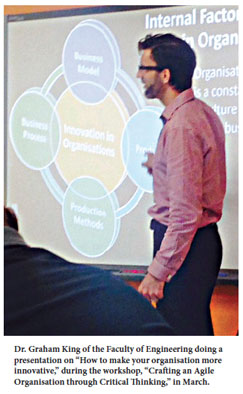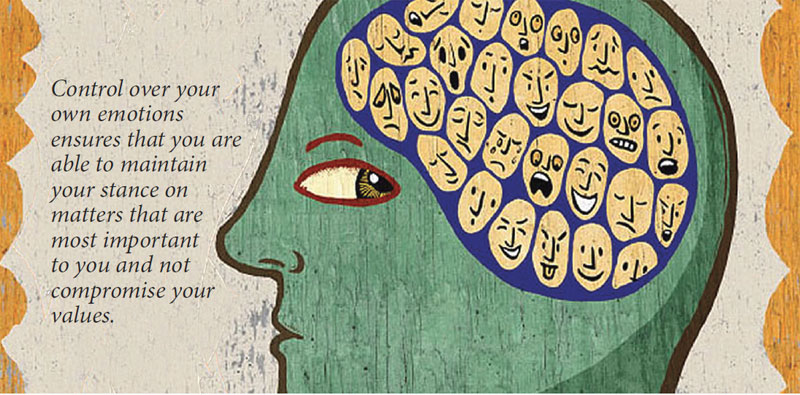|
November 2015

Issue Home >>
|


 The Executive Development Unit of the Institute of Critical Thinking at The UWI St. Augustine seeks to foster professional development through workshops it hosts periodically. In September, one of its popular workshops on emotional intelligence, “Building Organisational Efficiency using Emotional Intelligence: Aligning skills, purpose and strategy,” took place. The interactive workshop takes leaders through the gamut of people issues that they face when attempting to improve the efficiency and overall productivity of their operations. It is built for leaders who have reached the top of their organisation by virtue of their technical competence and soon realise that despite their best efforts to improve the organisation’s performance, issues of personality, communication and motivation hinder their progress. The Executive Development Unit of the Institute of Critical Thinking at The UWI St. Augustine seeks to foster professional development through workshops it hosts periodically. In September, one of its popular workshops on emotional intelligence, “Building Organisational Efficiency using Emotional Intelligence: Aligning skills, purpose and strategy,” took place. The interactive workshop takes leaders through the gamut of people issues that they face when attempting to improve the efficiency and overall productivity of their operations. It is built for leaders who have reached the top of their organisation by virtue of their technical competence and soon realise that despite their best efforts to improve the organisation’s performance, issues of personality, communication and motivation hinder their progress.
The concept of Emotional Intelligence has been studied by many social scientists and was made popular by the work of Daniel Goleman. In his 1998 article, “What makes a leader?” published in the Harvard Business Review, Goleman pointed to four elements that differentiated good leaders from great leaders. The first element was self-awareness. As the name suggests, it is the ability to understand who you are, what matters most to you, your own strengths and weaknesses. Being self-aware allows you to assess a situation that you are confronted with and question yourself to determine the most appropriate response. After all, if you understand your own emotions, then you can appreciate how your employees feel and how your emotional response can impact on them.
The second element is that of self-management. Self-management is the ability to take a step back from a situation, remove the initial emotional reaction from your mind and develop a more productive response to a situation. Control over your own emotions ensures that you are able to maintain your stance on matters that are most important to you and not compromise your values. Further, the ability to self-manage gives you the power to lead change, to think fast and to design creative and innovative solutions to issues.
Social awareness is the third element of Goleman’s model. Social awareness speaks to the leader’s ability to interpret the emotions of the members of his/her team. Imagine how influential you can be if you understood the emotions of your team and could use this to see things through their eyes. This would allow you to provide them with the right motivation to have them achieve goals, to be able to build and retain team members that you want and to provide the right views for appreciating organisational goals. A team that is motivated to achieving the goals of their organisation will be self-directed and high-performing.
The final element of Goleman’s model is social skills. Social skills are directly related to communication. Leaders with good social skills are good communicators. They are able to express themselves in a way that causes hearers to pay attention to what they are saying. This also lends itself to being able to deal with conflict appropriately. As a leader with good social skills, you will be able to communicate the organisation’s vision to your team by linking their goals with the vision and providing them with a mechanism for self-motivation and a focal point for developing team cohesiveness.

For information on future workshops, please contact us at 785-4587 or email ict@sta.uwi.edu |





